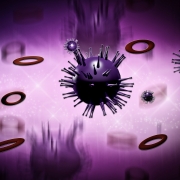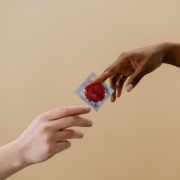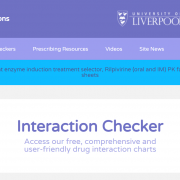Diagnosis
HIV can be diagnosed through rapid diagnostic tests that provide same-day results. This greatly facilitates early diagnosis and linkage with treatment and care. People can also use HIV self-tests to test themselves.
However, no single test can provide a full HIV diagnosis; confirmatory testing is required, conducted by a qualified and trained health or community worker at a community centre or clinic. HIV infection can be detected with great accuracy using WHO prequalified tests within a nationally approved testing strategy.
Most widely-used HIV diagnostic tests detect antibodies produced by the person as part of their immune response to fight HIV. In most cases, people develop antibodies to HIV within 28 days of infection. During this time, people experience the so-called “window” period – when HIV antibodies haven’t been produced in high enough levels to be detected by standard tests and when they may have had no signs of HIV infection, but also when they may transmit HIV to others. After infection, an individual may transmit HIV transmission to a sexual or drug-sharing partner or for pregnant women to their infant during pregnancy or the breastfeeding period.
Following a positive diagnosis, people should be retested before they are enrolled in treatment and care to rule out any potential testing or reporting error. Notably, once a person diagnosed with HIV and has started treatment they should not be retested.
While testing for adolescents and adults has been made simple and efficient, this is not the case for babies born to HIV-positive mothers. For children less than 18 months of age, serological testing is not sufficient to identify HIV infection – virological testing must be provided as early as birth or at 6 weeks of age. New technologies are now becoming available to perform this test at the point of care and enable same-day results, which will accelerate appropriate linkage with treatment and care.
Source: WHO.











Leave a Reply
Want to join the discussion?Feel free to contribute!